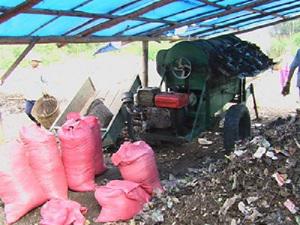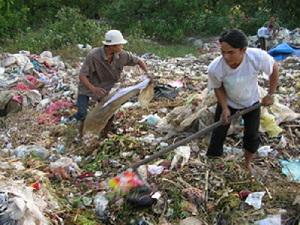Bernard Kervyn
Other projects
Waste recycling in rural Vietnam. The proposal is to consolidate a successful pilot by improving the safety for the workers, improve some equipment, and promotion of organic fertilizer for the very poor farmers who cannot to buy any fertilizer.

As Vietnam quickly modernizes, the amount of waste is multiplying even faster. The problem has reached critical proportions all over the country. The remote rural areas lack the resources to set up sophisticated recycling projects.

With the help of RSG, Mekong Plus could set up a model waste recycling unit which has now been proven successful on all counts (technical, good for agriculture, financial). Its multiplication is hampered only by short term legal issues relating to public land. The district of Tánh Linh however has allocated another piece of land to replicate the model 25 km away from the pilot site and it should be encouraged in this direction.
It is encouraging to observe demand for organic fertilizer is increasing, as well as the price increasing numbers of farmers are ready to pay for it. A large proportion of the demand for the compost comes also from other neighboring districts, thus providing another encouragement for these districts to implement their own recycling units. The initial hope the program could get additional financial support from international CO2 mitigating funds had to be abandoned because of its small size and the high costs or certification.
Vietnam is famous for using excessive doses of chemicals for its agriculture. Awareness among the authorities and a minority of farmers has increased and there is a demand for organic fertilizer and clean, safer agriculture products. The model has the capacity to produce 150 tons of organic fertilizer per year at low cost.
Activities planned:
1. Improve all-weather access to the waste recycling units;
2. Improve equipment for workers’ safety & reducing costs;
3. Testing of compost & decide for optimal mix;
4. Promotion among 1000 farmers in farmers’ groups;
5. Promotion among 600 extremely poor farmers.